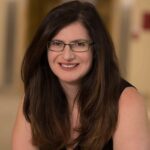Article Summary by Erene Stergiopoulos and Maria Athina (Tina) Martimianakis
What counts a ‘good doctor’ depends on who we ask. Research has shown that patients prioritise communication and empathy, while doctors emphasise medical expertise, and medical students describe a combination of the two. This study explored the concepts of the ‘good doctor’ held by medical students with chronic illnesses or disabilities who self-identified as patients. The authors aimed to understand how their learning as both patients and future physicians either aligned or misaligned with their existing medical school curricula. Using interviews, the authors interviewed students who identified as patients, and used critical discourse analysis, a social science method, to understand the how these students conceptualize the ‘good doctor’. In turn, they studied how their experiences produced moments of alignment or tension with their formal and informal learnings in their training. According to participants, dimensions of the ‘good doctor’ included (1) empathy and communication, (2) attention to illness impact, and (3) self-reflection and boundary-setting to separate oneself from one’s patients. Students reported they received formal teaching on empathy and illness impact, however these skills were often devalued through day-to-day interactions with teachers and peers. Importantly, students did not receive formal teaching on boundary-setting, however they developed independent reflective opportunities to cultivate these skills. Finally, the analysis identified two overarching themes of the ‘good doctor’ present in medical education: an ableist discourse of the “able doctor” and an opposing discourse of the “doctor with lived experience” which created a space for reframing experiences with illness and disability as a source of expertise rather than a source of stigma. Perspectives on the ‘good doctor’ carry important implications for how we define professional roles, and hold important consequences for medical school admissions, teaching and licensure. Medical students with lived experiences of illness and disability offer critical insights about curricular messages of the ‘good doctor’ based on their experiences as patients, providing important considerations for curriculum and faculty development.
Read the full article on the Medical Humanities journal website.
 Erene Stergiopoulos is a fifth year resident in Psychiatry and first year PhD student in Health Professions Education Research at the University of Toronto, where she is a Research Fellow of the Wilson Centre. She holds a BSc in Psychology and MA in History and Philosophy of Science from the University of Toronto. Under the supervision of Dr. Tina Martimianakis, her doctoral work uses critical qualitative methods to study the experiences of medical learners with disabilities. Using a socio-cultural lens, she is interested in processes of professional identity formation and institutional regulation for doctors and learners with disabilities, from training to practice.
Erene Stergiopoulos is a fifth year resident in Psychiatry and first year PhD student in Health Professions Education Research at the University of Toronto, where she is a Research Fellow of the Wilson Centre. She holds a BSc in Psychology and MA in History and Philosophy of Science from the University of Toronto. Under the supervision of Dr. Tina Martimianakis, her doctoral work uses critical qualitative methods to study the experiences of medical learners with disabilities. Using a socio-cultural lens, she is interested in processes of professional identity formation and institutional regulation for doctors and learners with disabilities, from training to practice.
 Maria Athina (Tina) Martimianakis is Professor and Director of Medical Education Scholarship in the Department of Paediatrics, and Scientist and Associate Director Collaborations and Partnerships, Wilson Centre, Faculty of Medicine, University of Toronto. As a Scientist Tina studies the socio-politics of education with a particular focus on issues related to the hidden curriculum, identity and faculty and learner experiences. As an educator, she employs critical and social cultural pedagogies to develop programming to address hidden curriculum effects and to enable health professionals to incorporate complex negotiations of the social world in their educational planning and implementation. Tina works with educational leaders in the department of Paediatrics and across the Faculty of Medicine to enhance educational scholarship, and to contribute to efforts to improve the learning environment with policy and curriculum interventions.
Maria Athina (Tina) Martimianakis is Professor and Director of Medical Education Scholarship in the Department of Paediatrics, and Scientist and Associate Director Collaborations and Partnerships, Wilson Centre, Faculty of Medicine, University of Toronto. As a Scientist Tina studies the socio-politics of education with a particular focus on issues related to the hidden curriculum, identity and faculty and learner experiences. As an educator, she employs critical and social cultural pedagogies to develop programming to address hidden curriculum effects and to enable health professionals to incorporate complex negotiations of the social world in their educational planning and implementation. Tina works with educational leaders in the department of Paediatrics and across the Faculty of Medicine to enhance educational scholarship, and to contribute to efforts to improve the learning environment with policy and curriculum interventions.